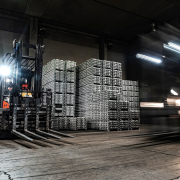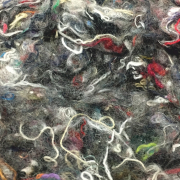FEAD Urges Strong Recycling Industry in Response to ENVI Vote on EU Textiles Strategy
FEAD, the European Waste Management Association, welcomes today’s vote in the European Parliament’s ENVI committee, expressing overall satisfaction with the direction of the report and the tabled amendments. The organization welcomes the Parliament’s view to ensure long-lasting, reusable, repairable, recyclable, and hazard-free textile products in the EU market and highlights the need for a robust framework to create and scale up a strong recycling industry for textile waste, which is an essential component of a sustainable and circular textiles strategy.
However, FEAD raises strong concerns about restricting recycling markets under the ‘close loop recycling’ mantra. Reduced markets for recycled products lead to lower recycling rates and to lower quality of the recyclates. In contrast, mandatory recycled content targets for textiles pull the demand for quality recycled fibres, boosts end-markets for separately collected textiles and triggers further investments to scale up textile recycling. While FEAD strongly supports the call for reliable data and benchmarks to establish the right (phased) targets, the organization also regrets that the Parliament maintains specific separate targets. FEAD considers that combined targets (for reuse and recycling) would avoid complicated legislation and bureaucratic administration.
On another note, FEAD also warns the EU legislator that the promotion of specific enterprises as ‘partners’ in the collection and waste management obligations and targets, distorts the market and puts at risk the quality of the treatment. They would like to emphasise that to ensure a level playing field and the environmentally sound management of textile waste, only permitted companies can be allowed to treat the waste in line with EU legislation.
Stressing the fact that textile waste is still falsely labelled as second-hand goods, FEAD strongly agrees with the need to establish rules to distinguish between used goods and waste to ensure safe and sound management of the waste. To facilitate the recycling of waste to introduce secondary raw materials into the circular economy, we underline the importance of waste shipments and strong end-of-waste criteria for textiles.
As a final remark, FEAD recognizes and welcomes the positive steps taken in the EU Textiles Strategy and urges legislators now to create the right legal framework to implement it. They remain committed to working with all stakeholders to promote a more sustainable and circular future for textiles in Europe and beyond.
Source: FEAD (Brussels, April 27,2023)







